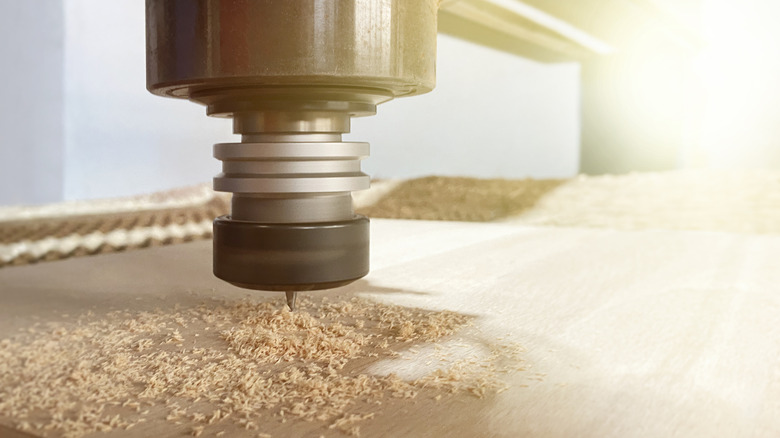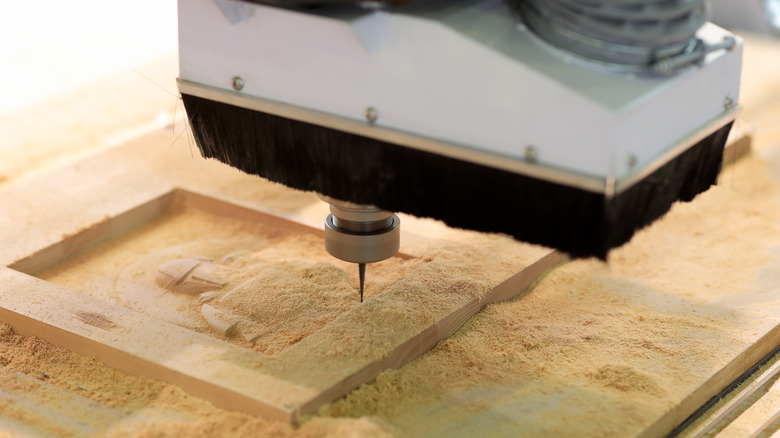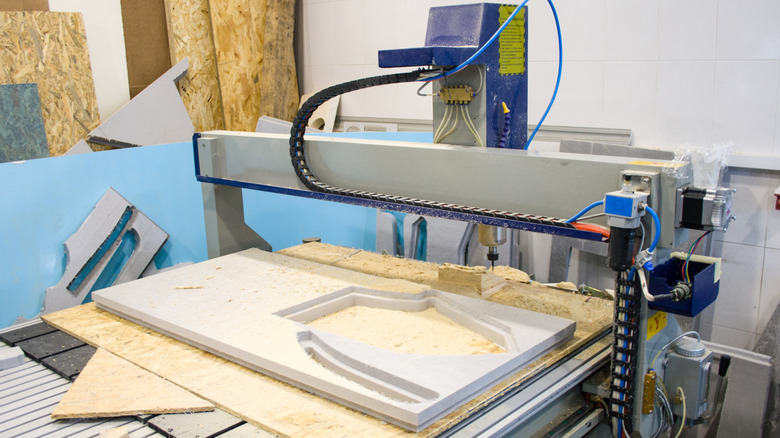What You Need To Know Before Buying A Used CNC Router For Woodworking
A CNC router is a great power tool, especially for those who usually engage in serious woodwork. It allows them to handle various woodworking projects precisely and quickly (whether they're making cabinetry or crafting intricate 3D designs). But despite being a versatile tool (it's not just for woodworkers but all kinds of users, including sign makers and custom fabricators), a CNC router can be quite expensive, with professional CNC routers ranging between $50,000 and $100,000. That said, you don't have to spend all that money, as you can seek out a used CNC router and knock a few bucks off the price.
Of course, getting a good used CNC router is more than just possible. However, purchasing a one is not a decision to rush, as this route comes with its own set of risks and rewards. After all, the used market usually lacks a guarantee about what you're purchasing. Also, untrustworthy sellers might hide defects that could lead to misaligned spindles or a failing stepper motor.
But that doesn't imply that you should avoid purchasing used CNC routers. It does, however, mean that you should keep a few safety advisories in mind to make an informed decision. With that said, let's explore some of the most crucial things to look for — and even avoid — when buying a second-hand router.
Crucial things to consider before investing in a used CNC router
As is the case with buying any used power tool, it's crucial you know exactly what the CNC router has been through before it gets into your workshop. If you were to purchase a used car, for instance, you would first ask for a vehicle history to assess its value, condition and know more about its past. The same goes for used CNC routers.
CNC routers, just like any power tool that's essential for advancing your woodworking skills, will wear out over time. And if it's pushed to its limits, it's not going to offer the same performance levels by the time you purchase it. Furthermore, its lifespan might be reduced, and this can easily turn into a costly mistake. To avoid this issue, it's best you inspect the machine's condition, and check for signs of excessive wear on crucial parts like ball screws, linear rails, and spindle.
Next, if possible, turn the machine on and conduct a test to assess its movement and precision. If you hear strange noises or notice uneven cuts, those are red flags that could indicate internal damage. In a similar concern, ask about the machine's maintenance history. Has anything been recently replaced? How often is it serviced? Keep in mind that machines that come with a service history report are a safer bet than those without.
Other things to consider when buying a used CNC router
Besides its physical components, you'll also want to check the CNC router's software and other electronics. Make sure that the CAM/CAD software is updated. After all, if the control system is outdated, it could make future repairs or upgrades stressful. You'll also want to ensure the software can handle your woodworking projects and operate without errors. You should also ensure the router is compatible with your computer or laptop. For one, if the CNC router has a parallel port instead of an Ethernet or USB port, that's a sign that the power tool is not compatible with modern computers.
Another crucial factor that should help you decide whether to buy a used CNC router is the manufacturer's reputation. Sure, most old power tools are safe to use. But you want to be careful, as some might not be reliable and could even cause deadly consequences. With that in mind, before purchasing a secondhand router, ensure it's from a trusted brand. Established brands like Makera Carvera Desktop CNC Machine, Cincinnati, Haas, and Mazak have a good reputation through quality machines and accessible technical support, manuals, and replacement parts.
Remember, lesser-known brands might offer cheaper options. However, if a key component fails six months later, can you source replacements without long delays or exorbitant costs?


